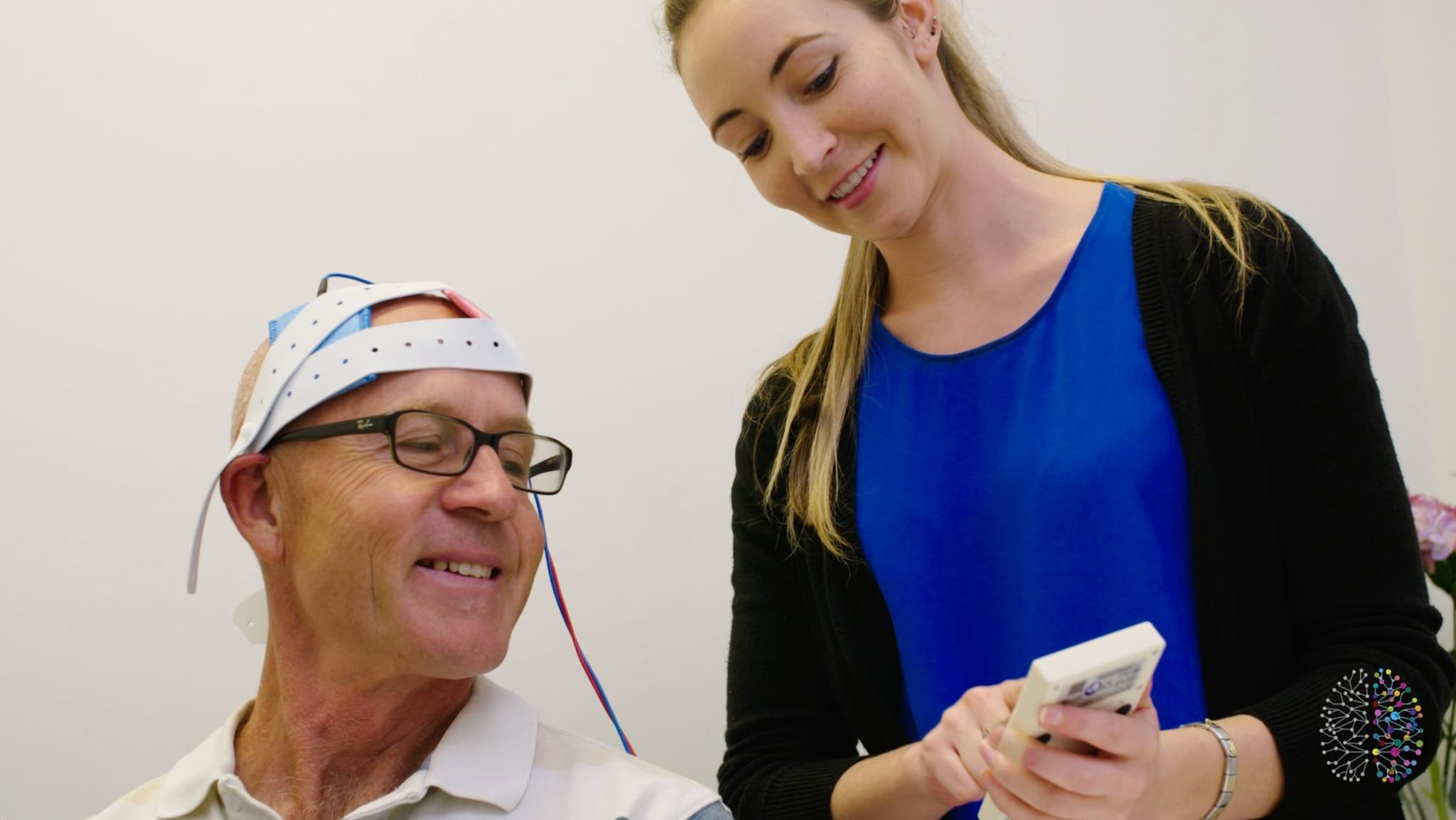
Transcranial Direct Current Stimulation (tDCS)
What is tDCS?
Trans-Cranial Direct Current Stimulation (tDCS) is a type of Non-Invasive Brain Stimulation (NIBS) therapy that uses a small electric current to stimulate the brain. During treatment, people sit comfortably whilst small sponge electrodes are positioned over targeted areas of the brain. The electrodes are held in place using soft straps and deliver a low-intensity direct electric current to the underlying brain. Treatment is safe, with most people simply feeling a mild “tingling” or “itching” sensation during the session. People will sometimes perform specific activities or exercises after each treatment session
Who can benefit from tDCS?
Research indicates that tDCS is an effective therapy for depression and there is evidence it can also help people with other conditions including, but not limited to: addiction, Alzheimer’s disease, chronic pain, epilepsy, fibromyalgia, migraine, Motor Neurone Disease, Parkinson’s Disease, Schizophrenia and stroke.







